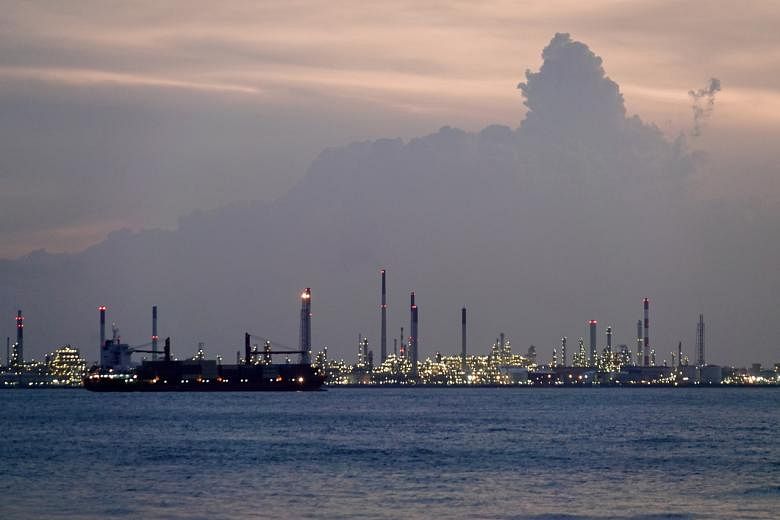A higher carbon tax meant to alert businesses that emissions have an explicit cost, impacting the environment: Grace Fu
SINGAPORE – The recently announced carbon tax hike aims to send a signal to businesses that carbon emissions have an explicit cost due to their impact on the environment, the Minister for Sustainable Development and Environment Grace Fu.
“Producers of these greenhouse gases need to factor in (the cost of the carbon tax) when making their business decisions,” Fu added.
Explaining the rationale for the tax hike, she said she hopes the higher and adequate amount would tip the scales towards environmental sustainability “rather than putting a zero or $5 price tag at the moment.”
She added: “Companies in the petrochemical, pharmaceutical or semiconductor sectors will then assess (the costs) and say, ‘If I have to pay x amount because of carbon emissions over the next six, eight, 10 years, maybe it’s worth it to invite me to install more energy efficient equipment or capture some of the carbon dioxide that was emitted, to reduce my carbon tax bill. »
She was speaking at a panel discussion at the Singapore University of Social Sciences (SUSS) after the university partnered with the Scout Association of Singapore to develop green initiatives for its students and help them hone their leadership skills in the sustainability arena.
In his budget speech on Friday, Finance Minister Lawrence Wong said Singapore’s carbon tax rate would rise from $5 per tonne of emissions to between $50 and $80 by 2030 for help the country achieve net zero emissions by 2050 or around 2050.
The current rate will be in place until next year. It will increase to $25 in 2024 and 2025, to $45 in 2026 and 2027, before reaching $50 to $80 per ton in 2030.
Singapore’s carbon tax currently applies to all facilities producing at least 25,000 tonnes of greenhouse gas emissions per year. They include 30 to 40 large emitters such as oil refineries and power plants.
They contribute 80% of Singapore’s greenhouse gas emissions.
Ms. Fu added that the government will use the carbon tax collection to incentivize businesses to adopt carbon reduction measures.
For example, if a small or medium-sized business wants to install an energy-efficient chiller or air conditioner, it can apply for energy grants from the National Environment Agency (NEA), she said.
The government also intends to introduce more subsidies to encourage businesses to reduce their energy consumption, she added.
On Saturday, Ms. Fu witnessed the signing of a memorandum of understanding between SUSS and the Scout Association of Singapore.


Comments are closed.